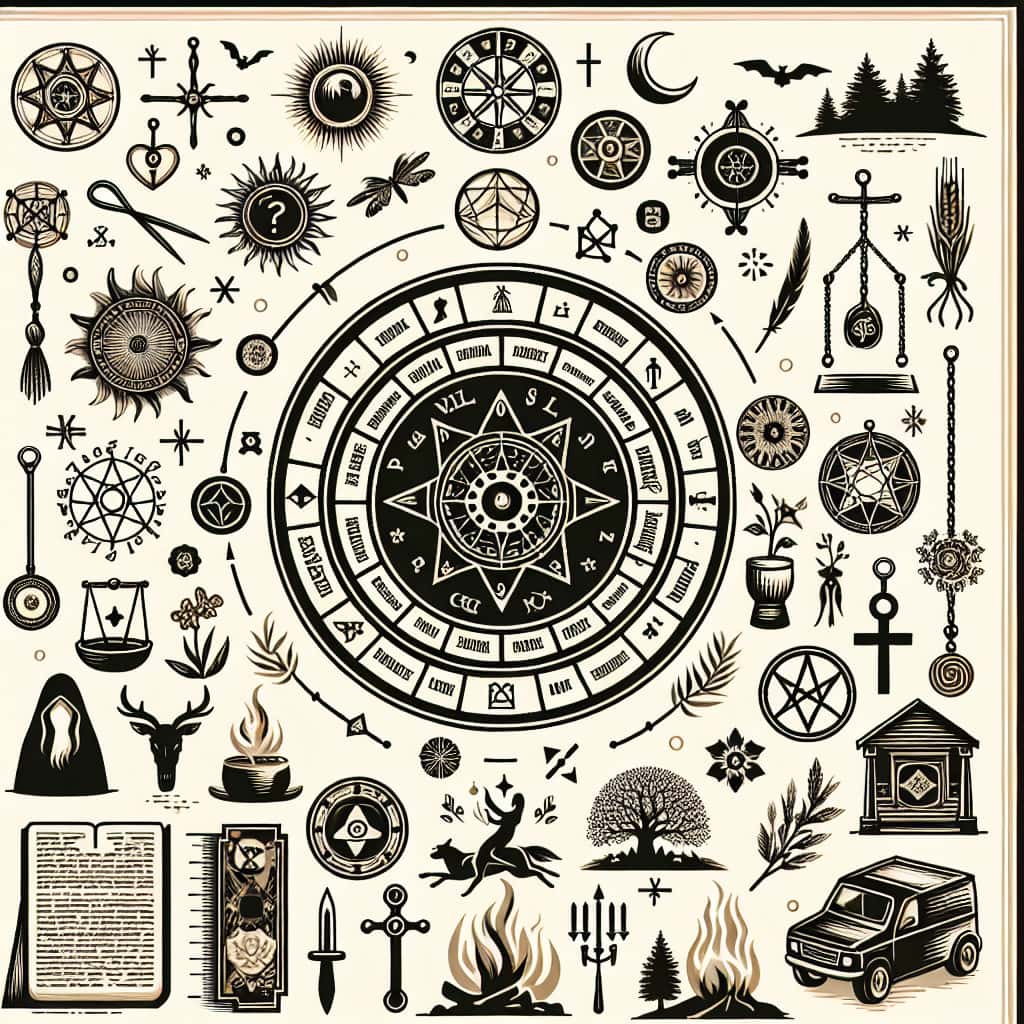Paganism is an ancient belief system that has been around for thousands of years. It is a polytheistic religion that is based on the worship of nature and the cycles of the natural world. Pagans believe in the interconnectedness of all things and strive to live in harmony with the natural world. This article will explore the beliefs and practices of the Pagan religion, and how they differ from other religions. It will also look at some of the common misconceptions surrounding Paganism and explain why the religion has become increasingly popular in recent years.
Paganism is an umbrella term used to describe a diverse set of spiritual and religious beliefs that are based on the worship of nature and the Earth. It is a broad term that encompasses many different belief systems, including Wicca, Druidry, Asatru, and other forms of polytheism.
Paganism is rooted in ancient spiritual traditions, often involving the worship of multiple deities, and the belief that the natural world is alive and interconnected. It is based on a reverence for nature, the cycles of the Earth, and the belief that the divine is found in all things.
What are Pagan beliefs?
Pagan beliefs are varied and can vary from one person or group to another, but some common themes include:
- The Worship of Nature: Pagans believe that the natural world is alive and interconnected, and that the divine is found in all things. Nature is a source of wisdom, power, and inspiration, and Pagans often seek to commune with nature in order to gain insight and knowledge.
- Polytheism: Pagans often believe in multiple deities, and respect a variety of pantheons from different cultures. Each deity is seen as having unique qualities and attributes, and is honored and respected in their own right.
- The Cycle of the Year: Pagans celebrate the changing of the seasons, and many follow a system of ritualistic observances that honor the turning of the Wheel of the Year. These observances often involve honoring the deities associated with the changing of the seasons, as well as celebrating the changing of one’s own life.
- Magic: Pagans often practice various forms of magical and ritualistic work, such as spell casting, divination, and other forms of energy work. This is often done in order to bring about desired changes in one’s life, or to connect with the divine.
- Reverence for Life: Pagans believe in respecting all life, and often strive to live in harmony with the natural world. They seek to honor and protect the environment, and to promote peace and justice in the world.
What is the difference between Paganism and other religions?
Paganism is a distinct spiritual tradition, with its own set of beliefs and practices that are distinct from other religions. It is not an organized religion, and does not have a single set of beliefs or practices that all Pagans must adhere to.
In contrast to many other religions, Paganism does not have a single set of scriptures or holy texts. While some Pagans read and study a variety of ancient texts, there is no central text that all Pagans must accept.
Paganism is also distinct from other religions in that it is not based on a single founder, but rather on a variety of ancient traditions, beliefs, and practices. It is a highly individualized spiritual path, and each Pagan is free to develop their own unique set of beliefs and practices.
Paganism is also distinct from other religions in its focus on nature. Pagans often seek to honor and commune with the natural world, and to live in harmony with the Earth. They often have deep respect for the cycles of the seasons, and celebrate the changing of the Wheel of the Year.
What are some common Pagan practices?
Pagan practices vary widely from one person or group to another, but some common practices include:
- Rituals: Pagans often practice various forms of ritualistic work, such as spell casting, divination, and other forms of energy work. This is often done in order to bring about desired changes in one’s life, or to connect with the divine.
- Meditation: Pagans often practice various forms of meditation, such as mindfulness, visualizations, and trance states. This is often done in order to calm the mind, gain insight and knowledge, and connect with the divine.
- Celebrations: Pagans often celebrate the changing of the seasons and the turning of the Wheel of the Year. These celebrations often involve honoring the deities associated with the changing of the seasons, as well as celebrating the changing of one’s own life.
- Prayers: Pagans often practice various forms of prayer, either in solitary or with a group. This is often done in order to give thanks, to ask for guidance, or to ask for blessings.
- Gathering: Pagans often gather in groups to celebrate the changing of the seasons, to share knowledge and stories, and to build community.
Conclusion
Paganism is an ancient spiritual tradition that is rooted in the worship of nature and the Earth. It is a highly individualized path, and each Pagan is free to develop their own unique set of beliefs and practices. Pagans often practice various forms of ritualistic work, such as spell casting, divination, and other forms of energy work. They also celebrate the changing of the seasons, and often gather in groups to share knowledge, stories, and to build community.
Paganism is a diverse set of spiritual beliefs and practices that have been practiced for centuries. It is based on the belief in the interconnectedness of all things and the power of nature. Pagans believe in the divine within all of us, and honor the cycles of the natural world. They also believe in the power of ritual to create and sustain connection with the divine, and use ritual to celebrate seasonal changes and important life events. Paganism is a spiritual path that encourages a deep respect for the earth and all of its inhabitants. It is an open and inclusive faith that is rooted in nature and focused on personal growth and community connection. Ultimately, paganism is a way of life that encourages its followers to live in harmony with the natural world and to foster a sense of connection to the divine.





